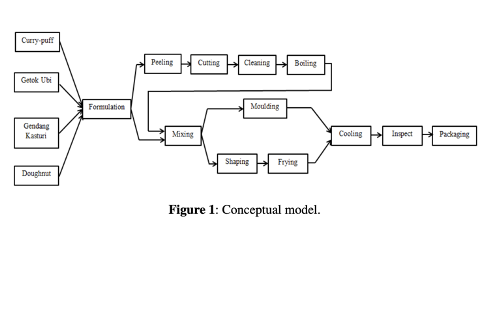Simulation of Scheduling Technique in a Food Processing Industry
Keywords:
Scheduling, Food Processing Industry, Simulation, WITNESSAbstract
Scheduling is one other method in productivity improvement. Scheduling occurs at the operation level of production planning and control system. Scheduling is important because it can optimize resource allocation and minimize waste. Simulation analysis can be used to evaluate the scheduling technique in order to determine the best alternatives. A case study company, Olilys Sdn. Bhd. Did are facing with the unsystematic scheduling methods for the job orders received from customers. The problem became worst during peak period (high demand) where the company unable to fulfil the customer orders. The objective of this project is to study the existing scheduling technique and find related problem, and propose an improvement in production scheduling system. In this project,
there are five scheduling techniques proposed, which are First Come First Serve (FCFS), Shortest Processing Time (SPT), Longest Processing Time (LPT), Priority Rules by product sequences: By Part1 and By Part 2, and Earliest Due Date (EDD). The simulation modelling and experimentation being done by using WITNESS simulation software. Through the experimentation analysis, the bestscheduling technique was selected and suggested to the company.
Downloads



















